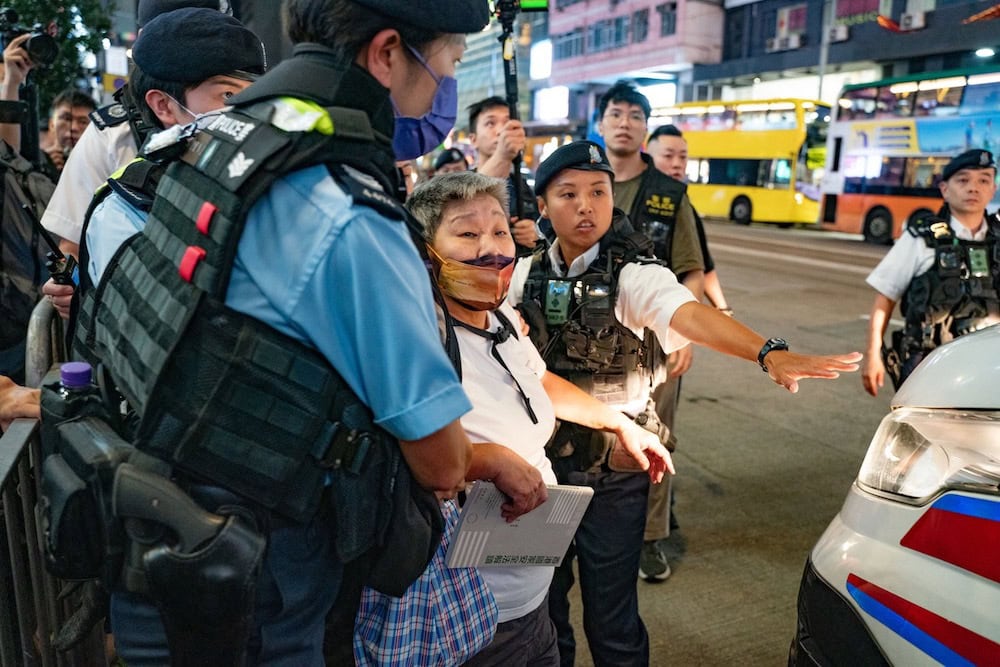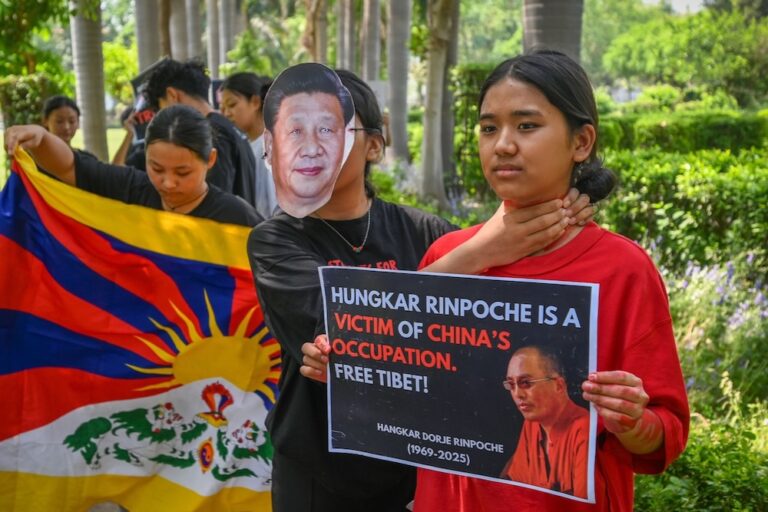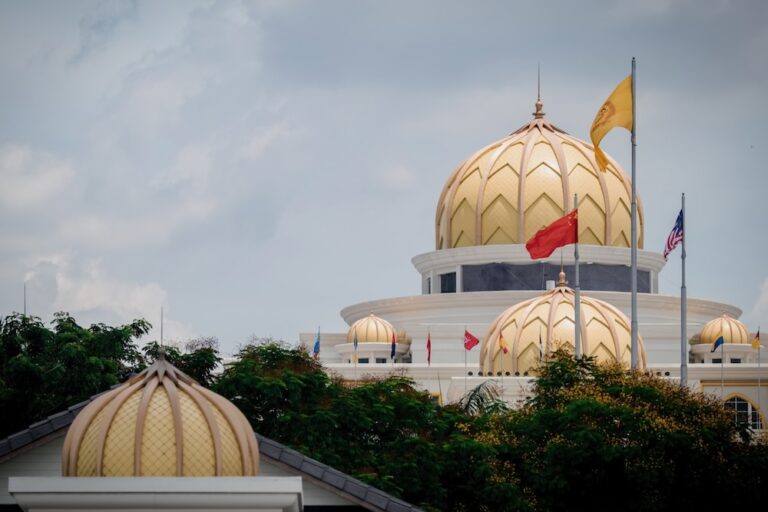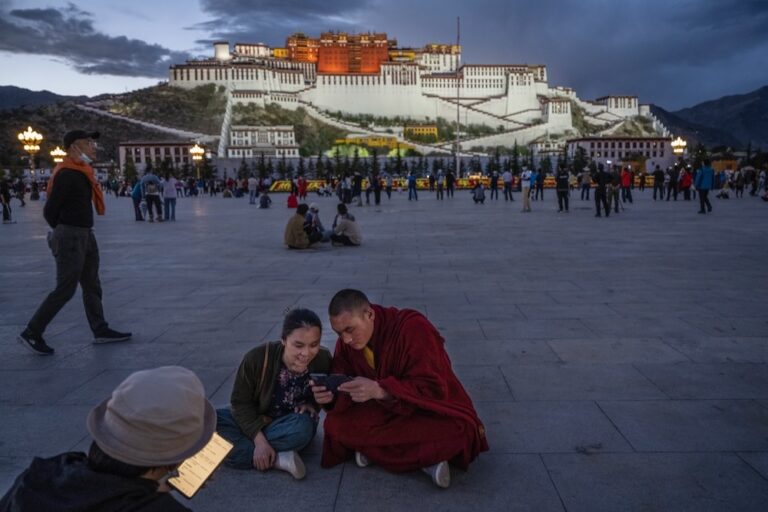June 2024 in Asia-Pacific: A free expression round-up produced by IFEX's regional editor Mong Palatino, based on IFEX member reports and news from the region.
Once again, censorship and arrests marked the anniversary of the “Tiananmen Massacre” in Hong Kong. Governments across the region have imposed repressive policies such as a VPN ban, blocking of apps, red-tagging, social media licensing, and denial of visas to critical journalists.
Hong Kong: “Tiananmen Massacre” censorship and crackdown
The 35th anniversary of the Tiananmen crackdown in China was marked with massive censorship, heavy deployment of police, arrests, and filing of sedition charges in Hong Kong.
Until 2020, thousands of people would congregate in the city to mark the anniversary with peaceful vigils. But the pandemic and the enactment of the Beijing-imposed National Security Legislation have led to the prohibition of political assemblies.
Ahead of the 4 June anniversary, police arrested at least eight individuals for posting alleged seditious content on social media. Human rights lawyer Chow Hang-tung was among those charged with sedition, even though she has been in detention since 2021. Yaqiu Wang of Freedom House wrote that the continued persecution of Chow “only speaks to the insecurity that she inspires in her own government and in Beijing.”
Reports showed some activists being dragged away by the police while shouting that “people will not forget.” Performance artist Sanmu Chan was apprehended by the police after he traced the number “8964” in the air with his hand, referencing the date of the 1989 crackdown.
During the same month, three overseas judges of the Court of Final Appeal handed in their resignations after they bemoaned the changing political environment in Hong Kong. Lord Jonathan Sumption, one of the non-permanent judges, wrote a commentary on Hong Kong’s “impossible political environment”.
“Intimidated or convinced by the darkening political mood, many judges have lost sight of their traditional role as defenders of the liberty of the subject, even when the law allows it. […] The least sign of dissent is treated as a call for revolution. Hefty jail sentences are dished out to people publishing ‘disloyal’ cartoon books for children, or singing pro-democracy songs, or organising silent vigils for the victims of Tiananmen Square.”
Journalists face criminal charges
In Mongolia, journalist Bayarmaa Ayurzana could face up to eight years in prison after she was charged with “threatening to disseminate information that might cause serious damage.” Bayarmaa, the editor-in-chief of news website Tac.mn, has published a series of investigative articles on alleged misuse of public funds involving Mongolia’s deputy prime minister. She has also previously faced harassment after exposing the illegal activities of mining companies linked to high-ranking officials.
In Vietnam, journalist Trương Huy San was arrested and charged under article 331 of the penal code, which prohibits “abusing democratic freedoms.” The journalist, whose pen name is Huy Duc, has a Facebook page with 350,000 followers. In a recent post titled “A country cannot develop based on fear,” he criticised the centralisation of power after the head of the Ministry of Public Security (police) was elected president of Vietnam. The International Press Institute said Huy Duc’s arrest “reflects the regime’s relentless effort to censor and control the media and to stifle any critical reporting of its policies.”
In China, a local court sentenced journalist Sophia Huang Xueqin to five years in prison on the charge of “inciting subversion of state power.” Huang was arrested in 2021 after reporting about sexual abuse, providing support to women victims, and supporting #MeToo campaigns in China. Reports said that Huang would appeal her unjust conviction.
South Asian journalists and writers under attack
Six journalists have been killed in Pakistan this year, amidst a worsening climate of impunity in the country following the February election. The latest victim was journalist Khalil Jibran, who was brutally murdered on 18 June in Khyber Pakhtunkhwa province. Jibran, a reporter for the Pashto-language broadcaster Khyber News, had consistently received threats for his reporting about the activities of militant groups. Local news also reported multiple attacks that injured journalists Haider Mastoi, Khan Muhammad Pitafi, and Chaudhry Ikhlaq in different parts of the country.
In India, Delhi authorities have decided to prosecute writers Arundhati Roy and Sheikh Showkat Hussain for speeches they made in a conference in 2010 held in Kashmir. The announcement was made a few days after the election, which could mean the continued use of the Unlawful Activities (Prevention) Act to silence critics under an unprecedented third term for Prime Minister Narendra Modi. PEN International said that the prosecution is a “disparaging signal of the authorities’ intent to continue efforts to delegitimise critical voices through the misuse of counter-terrorism legislation.”
Another disturbing trend in India is the non-renewal of work permits and visas for foreign correspondents. French reporter Sébastien Farcis was forced to leave India after 11 years of working as a journalist in the country. He said his work permit was not renewed and his appeals were ignored despite being married to an Indian citizen. “This ban therefore drives us out without explanation, and uproots us from one day to the next,” he said in a statement.
In February, journalist Vanessa Dougnac was also forced to leave the country after her visa was not renewed despite being a resident of India for 20 years.
Meanwhile, a feature article by citizen news website Groundviews explores additional hurdles faced by journalists who come from minority groups in South Asia, particularly in India, Sri Lanka and Pakistan. Minority journalists are subjected to intense discrimination, physical attacks, and other forms of abuse.
Impact of restrictive information policies
VPN ban in Myanmar. The junta continues to impose media censorship while social media apps are blocked to undermine pro-democracy forces. In late May, authorities banned the use of VPN, which further eroded the people’s access to information. Ma Wai Phyo Myint, Asia-Pacific policy analyst at Access Now, noted that this latest attempt to shut down the internet reveals the desperation of the junta. “Unable to restrict information flows, the regime decided to resort to an internet shutdown to keep people in the dark.”
Thousands of apps banned in China. According to research conducted by the App Censorship project under GreatFire, a censorship monitor group, more than 60 percent of the world’s top 100 apps in China Apple App stores are either unavailable or inaccessible in China. Among those blocked are 72 apps related to Uyghur culture and 41 apps associated with Tibetan culture and Buddhism. The research showed that “the country’s censorship system is designed for the purpose of isolation.”
Red-tagging in the Philippines. In a new study, the National Union of Journalists of the Philippines (NUJP) recorded 159 incidents of red-tagging against journalists, the majority of which were perpetrated by state forces. Red-tagging refers to the practice of linking individuals and groups to armed communists and rebels. In May 2024, the Supreme Court ruled that this poses a threat to a person’s liberty and security. NUJP warned that red-tagging “harms media workers, restricts truth-telling, adds to the chilling effect on the media community and affects the public’s access to relevant, truthful and timely information.”
Hate speech in Malaysia. ARTICLE 19 reminded Malaysian officials to address the persistence of hate speech which is “often used to silence and intimidate minorities and scapegoat whole groups in society while stifling dissent, or inciting physical violence.” It emphasised the “need to promote more open dialogue and dismantle restrictive environments.” Meanwhile, civil society groups submitted a letter urging the government to withdraw its plan of enforcing licensing rules for social media channels, a regulation which could lead to further censorship of free speech in the country.
Harsh penalty for “Taiwan independence” advocates. New guidelines released by Beijing would impose a maximum death penalty on “Taiwan independence” advocates. Michael Caster, Asia digital program manager at ARTICLE 19, said that the new rules now under effect are intended “to instil fear and gag independent expression on all things Taiwan.” He added that “this development serves to further bully the international community into isolating Taiwan.”
Good news in Thailand and the Philippines
The Marriage Equality Act was passed by the Senate in Thailand, which represents a big victory for the LGBTQI+ community and human rights advocates. Thailand will be the first country in Southeast Asia and the third in Asia to allow same sex marriage. Taiwan passed a similar legislation in 2019, while Nepal recognises same sex marriage under an interim order from the Supreme Court. After passing the Marriage Equality Act, Thailand is urged to strengthen legal protection for transgender people.
In the Philippines, former Senator Leila De Lima was cleared of drug dealing charges filed by the previous government of President Rodrigo Duterte. De Lima, a critic of the “drug war”, was detained for almost seven years after the Duterte government slapped her with politically-motivated charges. Her legal victory is a step forward in seeking accountability for the abuses committed by former and incumbent officials.



